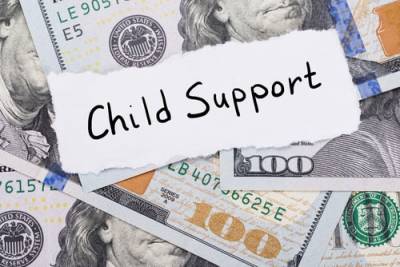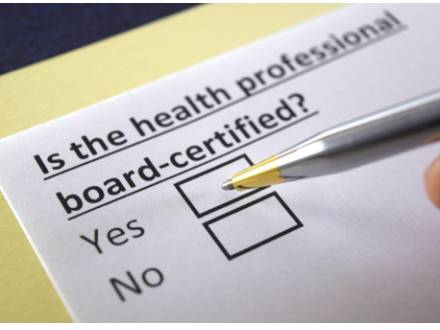Recent Blog Posts
What Happens if a Real Estate Agent Is Accused of Fraud in Illinois?
 If a real estate agent is accused of fraud in Illinois, they may face a license investigation and possible discipline. This can be frightening, especially when your career, income, and reputation are at risk.
If a real estate agent is accused of fraud in Illinois, they may face a license investigation and possible discipline. This can be frightening, especially when your career, income, and reputation are at risk.
Even a complaint can create stress and uncertainty. It is important to remember that an accusation does not mean you did anything wrong. You still have the right to defend yourself. Our Rockford, IL real estate license defense lawyer helps agents understand the process and take steps to protect their professional license.
What Is Considered Real Estate Fraud in Illinois?
Real estate fraud usually involves claims that an agent was dishonest or gave false information during a transaction. The Illinois Real Estate License Act of 2000, under 225 ILCS 454, requires agents to act honestly and treat clients fairly.
You Could Lose Your Professional License for Failure to Pay Child Support in Illinois
 Illinois can suspend or refuse to renew many state-issued professional licenses when child support falls behind. This can quickly threaten your income and your career.
Illinois can suspend or refuse to renew many state-issued professional licenses when child support falls behind. This can quickly threaten your income and your career.
As of 2026, Illinois still uses strong enforcement tools that can reach beyond wage withholding and tax refunds. If you work under a state license, it is worth talking with a Chicago, IL professional license defense lawyer early, before your license is put on hold.
Can Illinois Really Suspend a Professional License Over Child Support?
Illinois treats child support as a court-ordered obligation. When payments are past due (called "arrears"), the state can start enforcement actions that include license consequences.
What Are the Most Common Reasons for the Loss of Hospital Privileges?
 Losing hospital privileges can disrupt a medical career almost immediately. When privileges are restricted or revoked, a provider may no longer be able to admit patients, perform procedures, or deliver care within that facility. The professional and financial consequences can be significant. The situation often creates uncertainty about what comes next.
Losing hospital privileges can disrupt a medical career almost immediately. When privileges are restricted or revoked, a provider may no longer be able to admit patients, perform procedures, or deliver care within that facility. The professional and financial consequences can be significant. The situation often creates uncertainty about what comes next.
As of 2026, hospitals continue to closely monitor provider performance, professional conduct, and patient safety standards. A privilege action may not stay confined to one hospital and can affect future employment opportunities and licensing matters. If you are facing this situation, a Peoria, IL medical license defense lawyer can help you understand why these actions occur and what steps may help protect your career.
When Can Criminal Charges Lead to the Loss of a Professional License?
 In the most basic sense, criminal charges can lead to the loss of nearly any professional license, from medical to real estate. In 2025, research from the Archbridge Institute found that more than 20 percent of workers in the United States hold an occupational license. This means their ability to work depends on approval from a state licensing board. For licensed professionals in Illinois, even one criminal charge can put a career at risk.
In the most basic sense, criminal charges can lead to the loss of nearly any professional license, from medical to real estate. In 2025, research from the Archbridge Institute found that more than 20 percent of workers in the United States hold an occupational license. This means their ability to work depends on approval from a state licensing board. For licensed professionals in Illinois, even one criminal charge can put a career at risk.
As of 2026, Illinois licensing agencies continue to closely review criminal cases involving licensed professionals. This is especially true in healthcare, pharmacy, and other regulated fields where public trust matters. If you’re facing allegations, our Chicago, IL professional license defense lawyer can help.
How Can Doctors Defend Against the Loss of Board Certification?
 Doctors can defend against the loss of board certification by acting swiftly and responding carefully to complaints or investigations. Board certification is not taken away automatically. However, delays or mistakes can put a doctor’s career at risk.
Doctors can defend against the loss of board certification by acting swiftly and responding carefully to complaints or investigations. Board certification is not taken away automatically. However, delays or mistakes can put a doctor’s career at risk.
In 2025, the Federation of State Medical Boards reported that more than 1.08 million physicians were licensed in the United States. As of 2026, certifying boards and licensing agencies continue to increase oversight. This is especially true when complaints involve patient care or prescribing decisions. If your certification is at risk, working with our Peoria, IL doctor license defense lawyer can help protect your livelihood.
What Can Lead to License Discipline for Social Workers?
 License discipline for social workers usually happens when the state believes a professional broke licensing rules or ethical standards. It does not require a criminal charge. Many cases involve recordkeeping problems, boundary concerns, or complaints about professional conduct.
License discipline for social workers usually happens when the state believes a professional broke licensing rules or ethical standards. It does not require a criminal charge. Many cases involve recordkeeping problems, boundary concerns, or complaints about professional conduct.
Every year, the Illinois Department of Financial and Professional Regulation (IDFPR) publishes monthly enforcement and disciplinary reports. The most recent report issued in 2025 listed seven social workers facing disciplinary action. As of 2026, Illinois regulators closely review social workers.
If you are facing a complaint or investigation, a Rockford, IL social worker license defense lawyer can help you understand what triggered the review and what steps to take before the situation becomes more serious.
How Advertising Violations Lead to Board Discipline for Chiropractors
 The Illinois Board of Chiropractic Examiners reviews advertising and investigates complaints. Missteps can lead to board discipline when marketing does not meet professional standards.
The Illinois Board of Chiropractic Examiners reviews advertising and investigates complaints. Missteps can lead to board discipline when marketing does not meet professional standards.
These cases often start with a single website claim, social media post, or online ad. If you are concerned about facing consequences because of your marketing efforts, contact The Law Offices of Joseph J. Bogdan, Inc.. Our Chicago, IL chiropractor defense lawyer can help. You have the right to challenge any allegations of wrongdoing that threaten your professional license.
What Advertising Laws Apply to Chiropractors in Illinois?
Chiropractors in Illinois are regulated under the Illinois Medical Practice Act of 1987. This law allows the Illinois Department of Financial and Professional Regulation to license chiropractors. It also gives the Department the authority to enforce professional rules.
How Does a Substance Abuse Allegation Affect a Doctor’s License?
 Substance abuse allegations can threaten everything a physician has worked to build. When the Illinois Department of Financial and Professional Regulation (IDFPR) investigates these claims, your medical license, career, and reputation hang in the balance. Understanding how IDFPR evaluates substance abuse cases and how you should respond can make the difference between disciplinary action and protecting your right to practice. A Peoria, IL doctor license defense lawyer can guide you through this high-stakes process and help safeguard your professional future.
Substance abuse allegations can threaten everything a physician has worked to build. When the Illinois Department of Financial and Professional Regulation (IDFPR) investigates these claims, your medical license, career, and reputation hang in the balance. Understanding how IDFPR evaluates substance abuse cases and how you should respond can make the difference between disciplinary action and protecting your right to practice. A Peoria, IL doctor license defense lawyer can guide you through this high-stakes process and help safeguard your professional future.
What Happens When a Doctor Is Accused of Substance Abuse in Illinois?
A complaint often begins the process. This may come from a patient, a coworker, or an employer. The IDFPR reviews the report and decides whether an investigation is needed. If they open a case, the doctor receives written notice that explains the general concerns.
How To Prepare for a PBM Pharmacy Audit in Illinois
 If you own or manage a pharmacy, a notice of a PBM audit can come as an unwelcome surprise. Even a routine audit can feel intimidating, especially if you are unsure what to expect. The results may affect your payments, your reputation, or even your professional license. At The Law Offices of Joseph J. Bogdan, Inc., we can help you understand the audit process and prepare. Contact our experienced Rockford, IL PBM pharmacy audit defense lawyer to discuss your legal options.
If you own or manage a pharmacy, a notice of a PBM audit can come as an unwelcome surprise. Even a routine audit can feel intimidating, especially if you are unsure what to expect. The results may affect your payments, your reputation, or even your professional license. At The Law Offices of Joseph J. Bogdan, Inc., we can help you understand the audit process and prepare. Contact our experienced Rockford, IL PBM pharmacy audit defense lawyer to discuss your legal options.
What Triggers a PBM Audit in Illinois?
PBMs usually begin an audit when they see billing patterns that seem unusual. This might include a high number of refills, frequent claim adjustments, or a large volume of costly medications. Sometimes an audit starts after a complaint from a patient, a doctor, or an insurance company.
There are three main types of PBM audits:
What Counts as "Unprofessional Conduct" for Illinois Doctors?
 Doctors in Illinois are trusted to care for their patients safely and ethically. The Illinois Department of Financial and Professional Regulation (IDFPR) helps ensure doctors follow state rules and standards. The Illinois Medical Board also plays a role in overseeing this responsibility. These agencies set the rules that doctors must follow to maintain their licenses. Sometimes, a patient complaint, billing problem, or simple misunderstanding can lead to an investigation for "unprofessional conduct."
Doctors in Illinois are trusted to care for their patients safely and ethically. The Illinois Department of Financial and Professional Regulation (IDFPR) helps ensure doctors follow state rules and standards. The Illinois Medical Board also plays a role in overseeing this responsibility. These agencies set the rules that doctors must follow to maintain their licenses. Sometimes, a patient complaint, billing problem, or simple misunderstanding can lead to an investigation for "unprofessional conduct."
If this is happening to you, it does not automatically mean you did anything wrong. It simply means the IDFPR is reviewing a concern. If you are worried about protecting your medical license, a Peoria, IL medical license defense lawyer at The Law Offices of Joseph J. Bogdan, Inc. can help.
What Does the IDFPR Consider Unprofessional Conduct?
The term "unprofessional conduct" means behavior that does not meet the standards in the Illinois Medical Practice Act. According to 225 ILCS 60/22, this includes behavior that may harm patients or violate ethical standards. It can also involve actions that conflict with a doctor’s professional duties.









